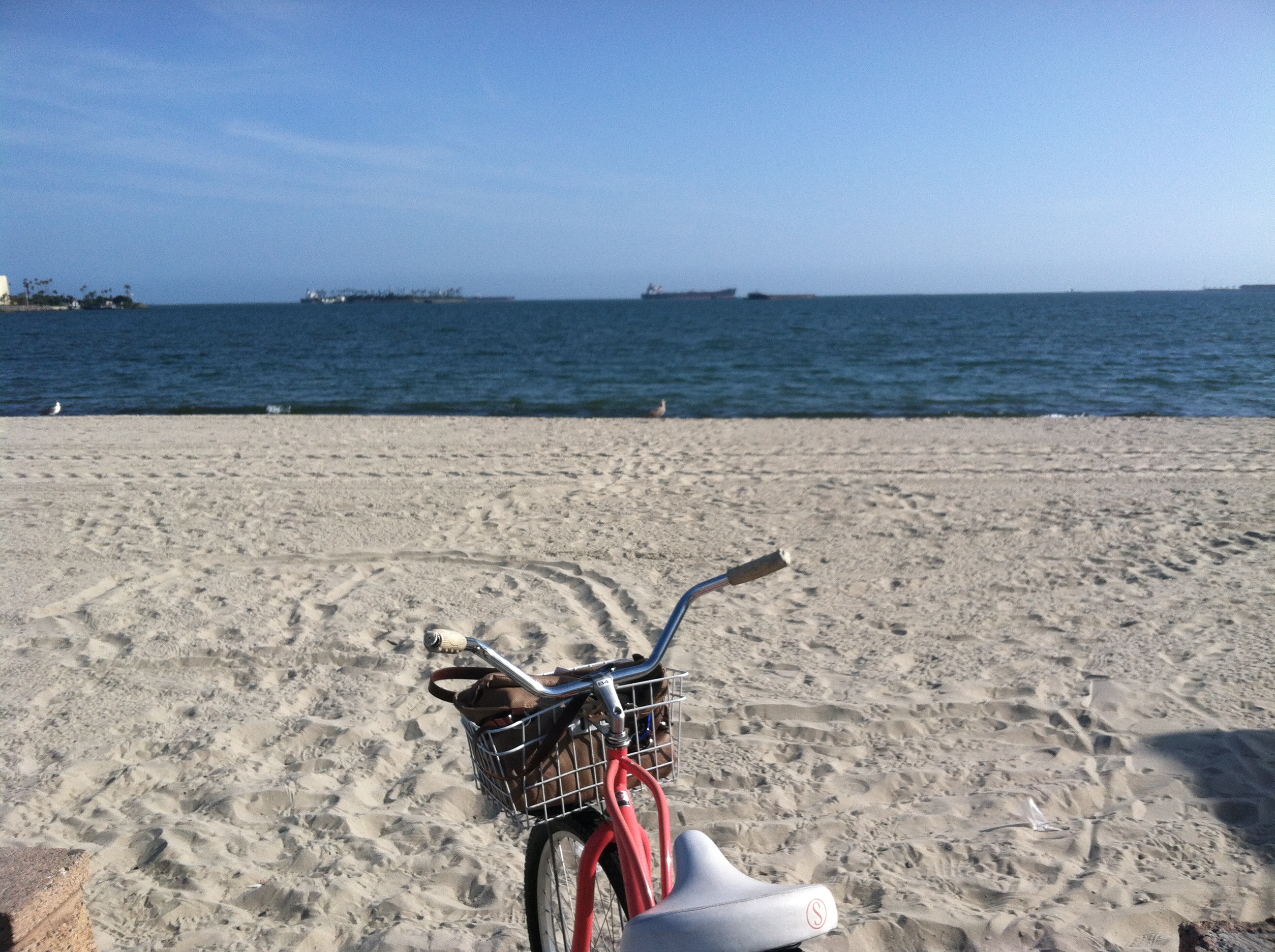I left my baby last week. I left him in his daddy’s very capable hands, but nonetheless left him overnight for the very first time. And of course, everything went to hell.
Normally, I travel about twice a year for work. I work with people all over the country, so it’s nice to connect in person once in a while. However, between my pregnancy and maternity leave, I hadn’t traveled since January 2013. So when my bosses suggested that I travel to a conference in California, I thought it was a good opportunity. I would have preferred being away for one night instead of five days, but that’s not how conferences work.
I did everything I could to prepare. I stocked up milk in the freezer, so Sprout would have plenty while I was gone. I looked up the nearest Starbucks with wifi so I could FaceTime in case I couldn’t get it at the conference center or hotel. I booked a 7 AM flight on Friday with a 4:45 AM hotel pickup to be home before his bedtime. I steeled myself for being away, kissed my baby goodbye, and got on the Metro to the airport.
The first day went very well for me. The hotel had free bike rentals, so I took one out and toodled around bike-friendly Long Beach, free of a trailer. (I also had the exciting experience of using a single speed bike with no hand brakes for the first time!) Later in the week, I took a bike down to the beach, where they have a multi-use trail split into separate lanes for bikes and pedestrians!
Afterwards, I went to dinner with my co-worker at an adorable coffeeshop without needing to worry about how many literal spoons I needed to entertain Sprout. I strolled along the street without a concern, looking at all of the neat art along the way.
I took note of the many vintage shops, local art stores, and boutiques I looked forward to visiting. I laid down in my hotel bed at 9 pm and slept until 6 am, for a glorious 9 hours of sleep. I felt a little guilty at how little I missed Sprout and Chris, but welcomed the rare freedom.
The only bad part was all of the pumping. Oh, pumping, the mother’s reward for trying to keep up breastfeeding. To keep up my milk supply, I needed to pump 5 to 6 times a day, including on the plane and at the conference center. As I thought it was more likely I would spill the milk, break my expensive pump, or expose way too much of myself standing in a bathroom than sitting in a non-conspicuous public spot, I went for the latter. I threw my nursing cover over me and intensely stared at my phone, hoping no one would bother me. It was particularly fun on my two flights to California, both of which I had the middle seat. Nothing to see here; just ignore this absurdly awkward lady attached to a small motor.
The second day started as well as the first, going on a pre-conference “field trip” to an alternative fuel station and going to a conference session. I even got to see my baby live over FaceTime, feeling like I was living in The Future. Chris had a challenging night, with Sprout wanting me instead of him, but we hoped things would calm down.
Instead, everything fell apart, at least for Chris. I was out to a late dinner when I noticed I had five missed phone calls and several texts from him, far past midnight Eastern time. The first message wasn’t exactly comforting: “He threw up. A lot. I don’t know what to do.” Of course, I called him even though there was little I could do to help. As I talked to Chris, I found out the story was even worse – Sprout had actually vomited multiple times. Fortunately, by that time, the pediatrician’s office had responded to Chris and said because Sprout didn’t have a fever, it was probably just a stomach bug. They advised Chris to feed him clear liquids and only to check back if the puking started back up. The next day was somewhat better, but Chris still had to deal with a cranky, sleep-deprived baby and the last of the bug clearing his system via diarrhea. Needless to say, I felt terrible that Chris had to handle this situation on his own. Besides the stress, it’s physically difficult to handle a squirmy sick baby by yourself. On the other hand, I was relieved that I didn’t have to handle it.
My conference continued on the rest of the week, as I fit FaceTiming with my family in-between attending sessions and staffing our booth. By Thursday, I really started to miss Chris and Sprout and was glad I was leaving the next day.
Everything seemed to settle down at home as well – until Friday morning. At 4 AM my time, I checked my phone and saw another dread-inducing text from Chris: “I’m sick.” He had caught Sprout’s stomach bug. Now I felt really guilty and wished without reservation that I was already home. When I was staying at home with Sprout, I had a nasty fever with serious dizziness and it terrified me. I told Chris to call on help if he needed it, but he said he was fine. Thankfully, he managed to survive until I arrived at the Metro station at 6 pm that evening.
When I finally did arrive home, Sprout had a surprisingly muted reaction. Picking him up for the first time, he kept looking at other things. Fortunately, that apathy changed the next morning, when he greeted me with a huge smile. Seeing me then was the real confirmation that I was home and wouldn’t be leaving again. He was quite attached to me the rest of the weekend. When he wanted to be picked up, I obliged of course. We had some nice bonding time on Saturday afternoon playing and listening to music when Chris took a mental break and got out of the house.
While the circumstances of me being gone were terrible, it really highlighted Chris’ abilities as a dad. I’m proud of how well he handled the situation and am so grateful to have him as my husband and father of my baby. He worried about getting me a Mother’s Day gift, but I told him that his caretaking last week was better than anything he could buy me.






